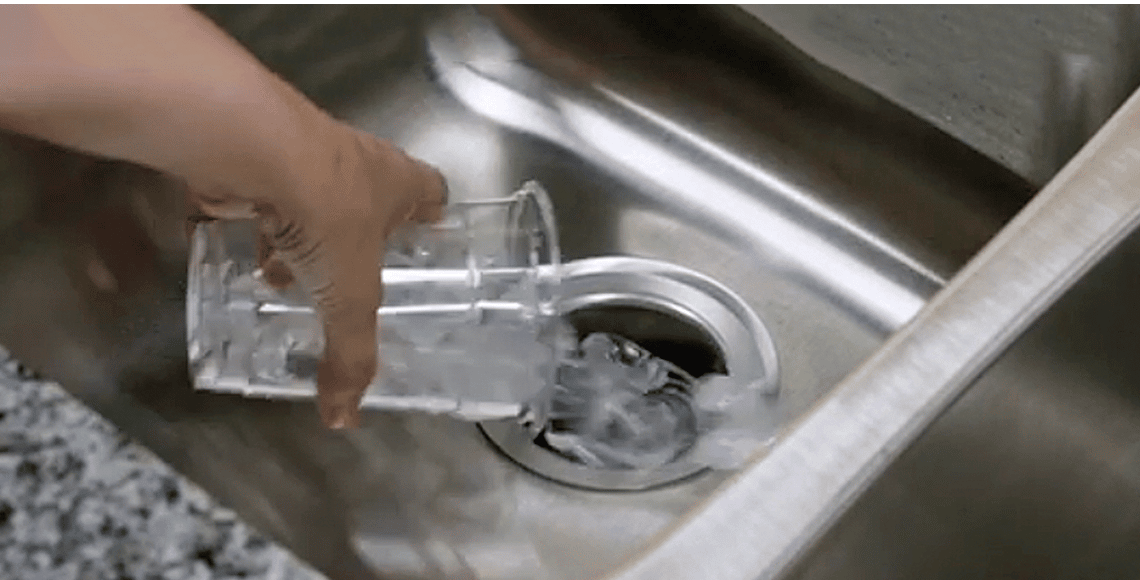
What is a Garbage Disposal?
Garbage disposals are residential and commercial appliances designed to shred food waste so that it can fit through plumbing. They are usually electrically powered (although occasionally powered by water pressure) and are installed beneath sinks. Despite the convenience afforded by garbage disposals, the strain they can place on septic systems should be weighed against any potential benefits they might provide.
Why Use a Garbage Disposal?
When food waste is discarded into the trash, it places an enormous burden on waste management systems and harm the environment. Garbage disposals reduce the severity of these problems by routing food waste into septic systems or sewers instead of landfills. The following are a few specific problems associated with food waste that can be curbed through the use of a garbage disposal:
- It must be collected and transported long distances to landfills and waste treatment facilities.
- In landfills, food scraps decompose and produce methane gas, which contributes to global warming.
Should I use a Garbage Disposal with a Septic System?
If a garbage disposal discharges into a septic tank, it can place significant strain on the septic system. The amount of waste that enters the tank, particularly grease and suspended solids, will increase considerably. This load increase requires that the septic tank be pumped more often than would otherwise be required. The New York Septic Code counts the presence of a garbage disposal the same as an extra room in a house when they estimate the load placed on a septic tank. The additional strain will also reduce the life span of the septic system. Septic systems can be designed to accommodate food waste but, in general, they are not.
What Should I dispose into the Garbage Disposal?
- Put only small quantities of food into the disposal at a time. Large food scraps should be cut into smaller pieces before entering the disposal.
- Never put anything down the disposal that is not food or water. Bottle caps, aluminum foil, and other non-food items can damage the disposal or get stuck in piping.
- Run water while using the disposal, and for approximately 30 seconds after you turn it off. Food scraps will flow through the piping more easily if they are pushed along by water. Cold water is better than warm water for this purpose because it will force fats and grease to congeal and harden, allowing them to move more easily through pipes. Warm water can be run through the disposal while it is not in operation.
- Ice can be used to clear off solidified grease and other debris from the blades in a garbage disposal.
The garbage disposal should only be used to grind non-fibrous, leftover food. If in doubt as to whether something can be put in the disposal, err on the side of caution and put it in the trash instead. The following items should never be put in a disposal:
- items that are hard enough to dull the blades, such as shells from shellfish or bones;
- food that is highly fibrous, such as corn husks, artichokes, pineapples, potato peels, asparagus, or celery should enter a disposal only in small quantities or avoided entirely. These foods take a long time to grind and can clog the disposal or the plumbing.
- grease or household oils; or
- chemicals.
Here is a link to a Home Depot article about Garbage Disposal Maintenance and repair https://www.homedepot.com/c/ah/how-to-fix-a-garbage-disposal/9ba683603be9fa5395fab9085146447
About the Author
Athena Deichman is the owner and mascot of Fidelity Home Inspections. She loves eating anything cooked on the grill. Her hobbies include eating dirty socks, walking on the beach and attending “Yappy Hour” with her K9 friends. She is a rescue from Heaven Sent Animal rescue if your are interested in saving a life here is a link to their website https://www.hsarnj.org

Fidelity Home Inspections InterNachi Certified
Fidelity Home Inspections serves all of New Jersey. In addition to being N.J. Licensed Home Inspectors, we are Internachi Certified Professional Home Inspectors. InterNACHI® inspectors are trained and certified by the International Association of Certified Home Inspectors, the world’s largest association of residential and commercial property inspectors. Call Today to Schedule a Home Inspection 609 337 6167! For more information check out our website http://www.fidelityhomeinspection.com
As an InterNACHI® Certified Professional Inspector®:
- I’m required to stay up to date with the industry’s most rigorous Continuing Education through online, video and live training courses, which have been awarded more than 1,400 approvals and accreditations by governmental and other agencies;
- I adhere to a comprehensive Standards of Practice to ensure that you receive a detailed and accurate home inspection;
- I abide by a strict Code of Ethics, which puts my clients first and protects their rights as consumers; and
- I use state-of-the-art inspection tools and reporting software so that my clients can make informed decisions about the homes they want to buy or sell.
For further information about InterNachi check out their website http://www.nachi.org


